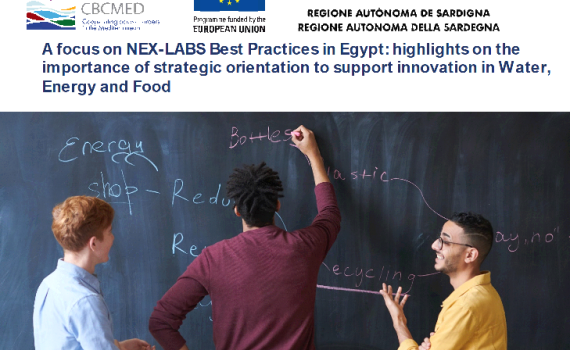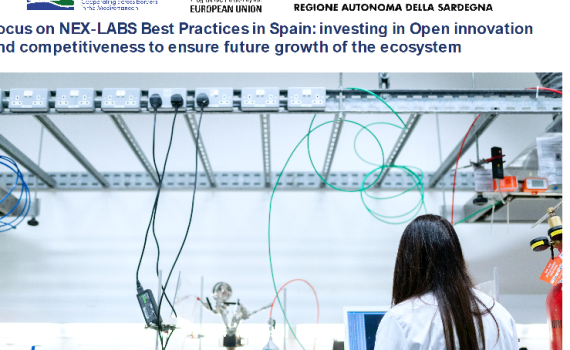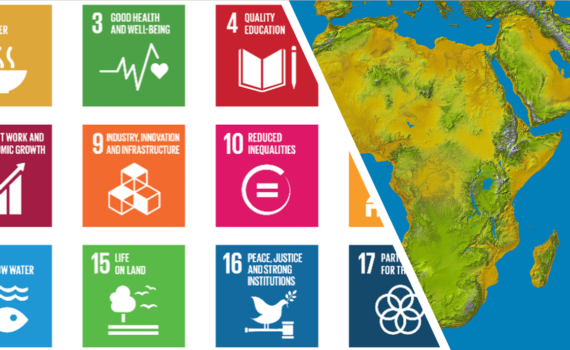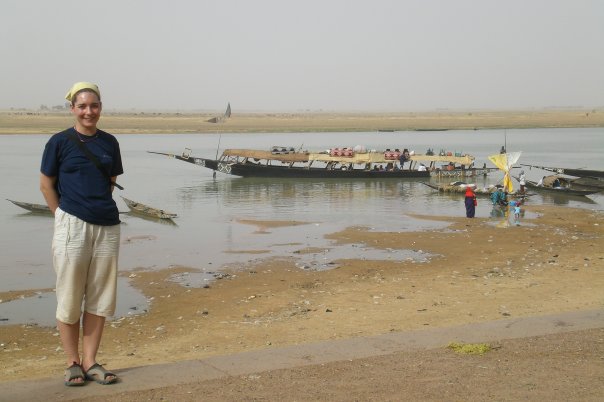Cookie Policy
Questo Sito Web fa utilizzo di Strumenti di Tracciamento. Per saperne di più, gli Utenti possono consultare la Cookie Policy.
Questa sezione si applica a tutti gli utenti dell'Unione Europea, in conformità al Regolamento generale sulla protezione dei dati (il "GDPR") e, per tali Utenti, sostituisce qualsiasi altra informazione eventualmente divergente o in conflitto contenuta nell'informativa sulla privacy. Ulteriori dettagli relativi alle categorie di Dati trattati, alle finalità del trattamento, alle categorie di destinatari dei Dati personali, se presenti, e ulteriori informazioni sui Dati personali sono disponibili nella sezione "Informazioni dettagliate sul trattamento dei Dati personali" all'interno del presente documento.
Base giuridica del trattamento
Il Titolare tratta Dati Personali relativi all’Utente in caso sussista una delle seguenti condizioni:
- l’Utente ha prestato il consenso per una o più finalità specifiche.
- il trattamento è necessario all'esecuzione di un contratto con l’Utente e/o all'esecuzione di misure precontrattuali;
- il trattamento è necessario per adempiere un obbligo legale al quale è soggetto il Titolare;
- il trattamento è necessario per l'esecuzione di un compito di interesse pubblico o per l'esercizio di pubblici poteri di cui è investito il Titolare;
- il trattamento è necessario per il perseguimento del legittimo interesse del Titolare o di terzi.
È comunque sempre possibile richiedere al Titolare di chiarire la concreta base giuridica di ciascun trattamento ed in particolare di specificare se il trattamento sia basato sulla legge, previsto da un contratto o necessario per concludere un contratto.
Ulteriori informazioni sul tempo di conservazione
Se non diversamente indicato in questo documento, i Dati Personali sono trattati e conservati per il tempo richiesto dalla finalità per la quale sono stati raccolti e potrebbero essere conservati per un periodo più lungo a causa di eventuali obbligazioni legali o sulla base del consenso degli Utenti.
Pertanto:
- I Dati Personali raccolti per scopi collegati all’esecuzione di un contratto tra il Titolare e l’Utente saranno trattenuti sino a quando sia completata l’esecuzione di tale contratto.
- I Dati Personali raccolti per finalità riconducibili all’interesse legittimo del Titolare saranno trattenuti sino al soddisfacimento di tale interesse. L’Utente può ottenere ulteriori informazioni in merito all’interesse legittimo perseguito dal Titolare nelle relative sezioni di questo documento o contattando il Titolare.
Quando il trattamento è basato sul consenso dell’Utente, il Titolare può conservare i Dati Personali più a lungo sino a quando detto consenso non venga revocato. Inoltre, il Titolare potrebbe essere obbligato a conservare i Dati Personali per un periodo più lungo per adempiere ad un obbligo di legge o per ordine di un’autorità.
Al termine del periodo di conservazione i Dati Personali saranno cancellati. Pertanto, allo spirare di tale termine il diritto di accesso, cancellazione, rettificazione ed il diritto alla portabilità dei Dati non potranno più essere esercitati.
Diritti dell’Utente sulla base del Regolamento Generale sulla Protezione dei Dati (GDPR)
Gli Utenti possono esercitare determinati diritti con riferimento ai Dati trattati dal Titolare.
In particolare, nei limiti previsti dalla legge, l’Utente ha il diritto di:
- revocare il consenso in ogni momento. L’Utente può revocare il consenso al trattamento dei propri Dati Personali precedentemente espresso.
- opporsi al trattamento dei propri Dati. L’Utente può opporsi al trattamento dei propri Dati quando esso avviene in virtù di una base giuridica diversa dal consenso.
- accedere ai propri Dati. L’Utente ha diritto ad ottenere informazioni sui Dati trattati dal Titolare, su determinati aspetti del trattamento ed a ricevere una copia dei Dati trattati.
- verificare e chiedere la rettificazione. L’Utente può verificare la correttezza dei propri Dati e richiederne l’aggiornamento o la correzione.
- ottenere la limitazione del trattamento. L’Utente può richiedere la limitazione del trattamento dei propri Dati. In tal caso il Titolare non tratterà i Dati per alcun altro scopo se non la loro conservazione.
- ottenere la cancellazione o rimozione dei propri Dati Personali. L’Utente può richiedere la cancellazione dei propri Dati da parte del Titolare.
- ricevere i propri Dati o farli trasferire ad altro titolare. L’Utente ha diritto di ricevere i propri Dati in formato strutturato, di uso comune e leggibile da dispositivo automatico e, ove tecnicamente fattibile, di ottenerne il trasferimento senza ostacoli ad un altro titolare.
- proporre reclamo. L’Utente può proporre un reclamo all’autorità di controllo della protezione dei dati personali competente o agire in sede giudiziale.
Gli Utenti hanno diritto di ottenere informazioni in merito alla base giuridica per il trasferimento di Dati all'estero incluso verso qualsiasi organizzazione internazionale regolata dal diritto internazionale o costituita da due o più paesi, come ad esempio l’ONU, nonché in merito alle misure di sicurezza adottate dal Titolare per proteggere i loro Dati.
Dettagli sul diritto di opposizione
Quando i Dati Personali sono trattati nell’interesse pubblico, nell’esercizio di pubblici poteri di cui è investito il Titolare oppure per perseguire un interesse legittimo del Titolare, gli Utenti hanno diritto ad opporsi al trattamento per motivi connessi alla loro situazione particolare.
Si fa presente agli Utenti che, ove i loro Dati fossero trattati con finalità di marketing diretto, possono opporsi al trattamento in qualsiasi momento, gratuitamente e senza fornire alcuna motivazione. Qualora gli Utenti si oppongano al trattamento per finalità di marketing diretto, i Dati Personali non sono più oggetto di trattamento per tali finalità. Per scoprire se il Titolare tratti Dati con finalità di marketing diretto gli Utenti possono fare riferimento alle rispettive sezioni di questo documento.
Come esercitare i diritti
Per esercitare i propri diritti, gli Utenti possono indirizzare una richiesta ai recapiti del Titolare indicati in questo documento. La richiesta è gratuita e il Titolare risponderà nel più breve tempo possibile, in ogni caso entro un mese, fornendo all’Utente tutte le informazioni previste dalla legge. Eventuali rettifiche, cancellazioni o limitazioni del trattamento saranno comunicate dal Titolare a ciascuno dei destinatari, se esistenti, a cui sono stati trasmessi i Dati Personali, salvo che ciò si riveli impossibile o implichi uno sforzo sproporzionato. Il Titolare comunica all'Utente tali destinatari qualora egli lo richieda.
Ulteriori informazioni sul trattamento
Difesa in giudizio
I Dati Personali dell’Utente possono essere utilizzati da parte del Titolare in giudizio o nelle fasi preparatorie alla sua eventuale instaurazione per la difesa da abusi nell'utilizzo di questo Sito Web o dei Servizi connessi da parte dell’Utente.
L’Utente dichiara di essere consapevole che il Titolare potrebbe essere obbligato a rivelare i Dati per ordine delle autorità pubbliche.
Informative specifiche
Su richiesta dell’Utente, in aggiunta alle informazioni contenute in questa privacy policy, questo Sito Web potrebbe fornire all'Utente delle informative aggiuntive e contestuali riguardanti Servizi specifici, o la raccolta ed il trattamento di Dati Personali.
Log di sistema e manutenzione
Per necessità legate al funzionamento ed alla manutenzione, questo Sito Web e gli eventuali servizi terzi da essa utilizzati potrebbero raccogliere log di sistema, ossia file che registrano le interazioni e che possono contenere anche Dati Personali, quali l’indirizzo IP Utente.
Ulteriori informazioni in relazione al trattamento dei Dati Personali potranno essere richieste in qualsiasi momento al Titolare del Trattamento utilizzando gli estremi di contatto.
Modifiche a questa privacy policy
Il Titolare del Trattamento si riserva il diritto di apportare modifiche alla presente privacy policy in qualunque momento notificandolo agli Utenti su questa pagina e, se possibile, su questo Sito Web nonché, qualora tecnicamente e legalmente fattibile, inviando una notifica agli Utenti attraverso uno degli estremi di contatto di cui è in possesso. Si prega dunque di consultare con frequenza questa pagina, facendo riferimento alla data di ultima modifica indicata in fondo.
Qualora le modifiche interessino trattamenti la cui base giuridica è il consenso, il Titolare provvederà a raccogliere nuovamente il consenso dell’Utente, se necessario.
















